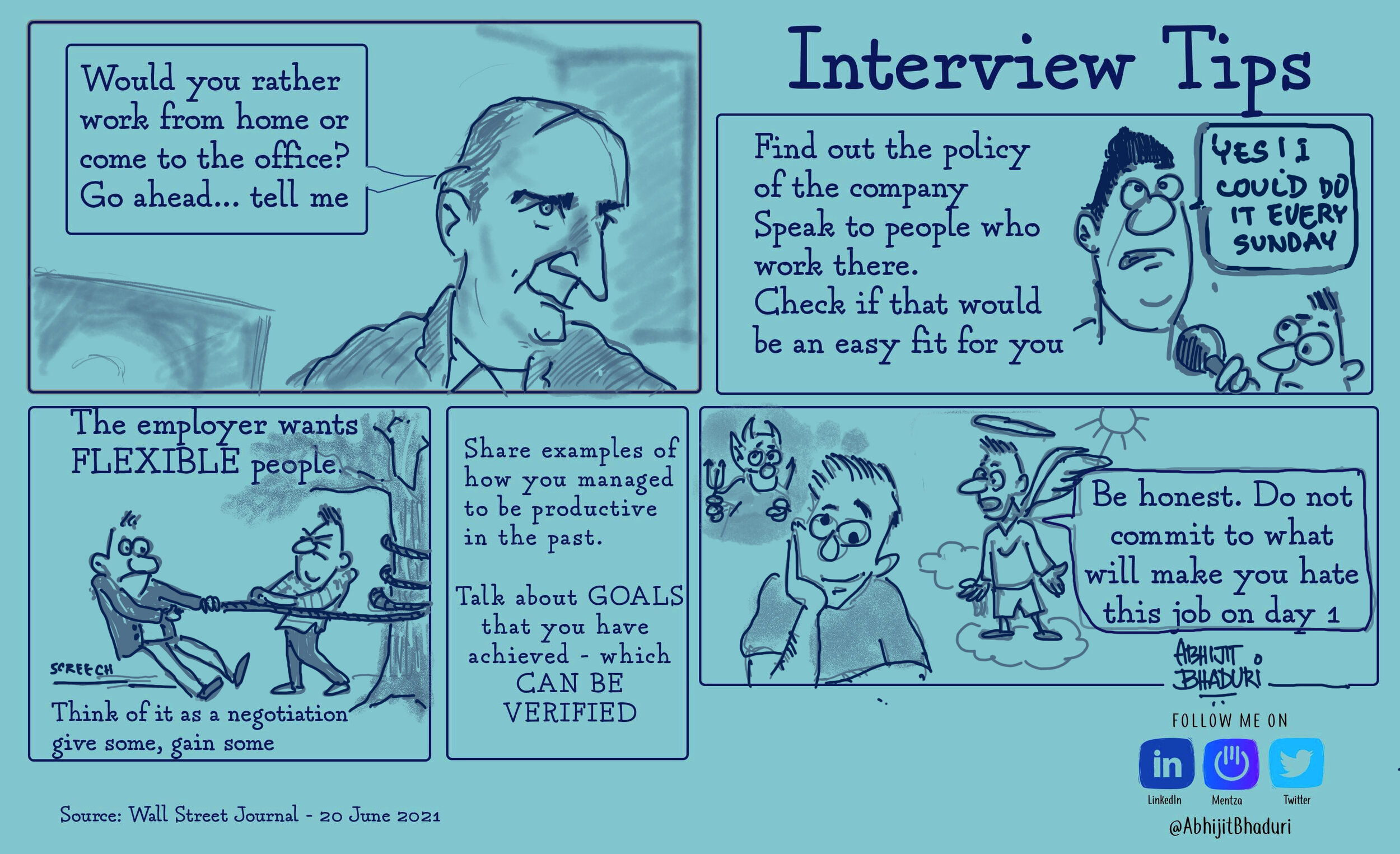Handling The WFH Question During A Job-Interview
The question that keeps coming up in job interviews these days
The dreaded question that comes up frequently
One of the most common questions during a job interview is about your locational preference. When the interviewer asks you, “Given a choice, where would you rather work? Would you prefer to come to office or would you prefer to be working from home?”
“Would you prefer to come to office or would you prefer to be working from home?”
This is a tricky question especially if you can see the interviewers sitting in their office and asking you this question. And you are in all likelihood sitting in your room trying to nudge away your dog you is barking. You are being advised by friends to say that the expected answer is to say, “I want to work from an office so that I can be more productive and get to know my colleagues. That will let me find opportunities to help them out and collaborate with them.” At this time, the interviewer will wipe his tears and give you the appointment letter and say, “If only everyone was like you, the world would be a better place.” But you are not going to follow your friends. So what should you do?
What if you want to work-from-home but worry that it may not sit well with the interviewers.
Think of the emotion behind the question
No employer wants to be stuck with an inflexible employee. They want to know, if needed will you work equally hard if you were left unsupervised? Or do you want someone cracking the whip every morning to get you to your desk?
Give concrete examples of how you have met your targets and do it consistently - whether you have worked in the office or from anywhere else.
Talk about being flexible about doing what the business needs. That is very reassuring.
Find out their policy. Most companies are making the back to office policy known to everyone. You may find that their policy is just what you want. So save yourself the anxiety
Final tip: The end goal is not just to get a job, but to get a job where you are happy. So if the policies of the firm and its culture make you uneasy, you may want to tread cautiously. Talk to people who have worked there (LinkedIn and GlassDoor provide many possibilities) and find out if people who work there feel that the employer is flexible too. After all someone who expects you to be flexible must be prepared to be flex too. But there is a another question we must address.
Why is ‘Back to Office’ such a big deal
Organisations have always worked with the office being the place of work. Most of the organisations have had the majority of their employees work out of the fixed office spaces. During the pandemic, the employees discovered that most of the white collar jobs can done reasonably well from their home. Once a person tastes that freedom, it is hard to turn the clock back.
In the pre-pandemic world, the employer worried about who they could offer work-from-home as a perk or a temporary measure. Post pandemic, the big question will be: Who should be brought back to the office, which office, for how long and how often. Once they figure it out, it will be a question of timing. Employers will have to answer the dreaded question, “Why does this job need to be done in the office and not from any other location?”
When the interviewer asks you, “Do you have any questions for us?” you could ask them to share their WFH policy.
If you have a question for me, email me at abhijitbhaduri@live.com
Read the Wall Street Journal article that has been the inspiration for my sketchnote. <read this>




